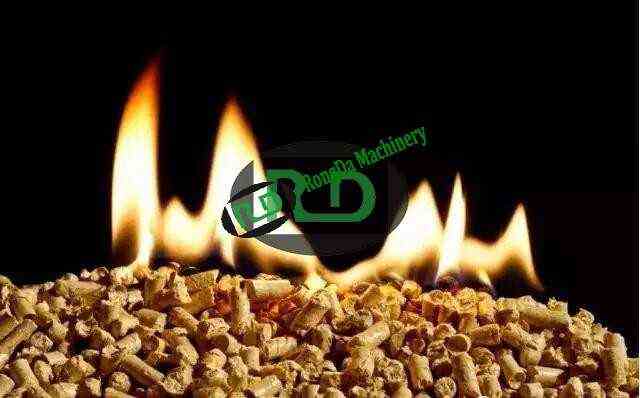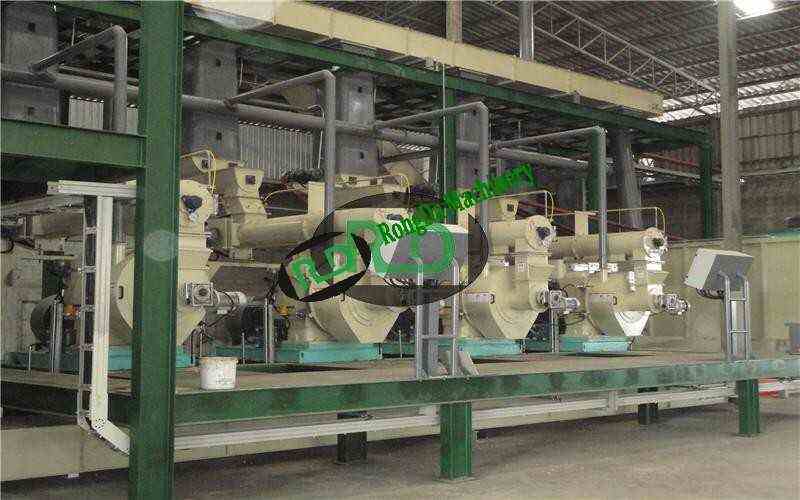Welcome to Rongda Machinery Co., Ltd
Toggle Navigation
Biomass energy refers to the solar energy fixed on the earth by the photosynthesis of plants, converted into the form of the earth's biological material through the biological chain, and the energy to provide raw materials for social life through processing.
Biomass energy refers to the solar energy fixed on the earth by the photosynthesis of plants, converted into the form of the earth's biological material through the biological chain, and the energy to provide raw materials for social life through processing.

Biomass pellet fuel is wood chips, bamboo chips, branches and other raw materials, through professional machinery, special process, without any chemical additives, high pressure and low temperature compression molding granular fuel. Biomass pellet fuel has high calorific value, is clean and pollution-free, and is a high-tech environmental protection product to replace fossil energy.
The CO2 released by biomass pellet fuel during combustion is roughly equivalent to the CO2 absorbed by photosynthesis when it grows, so the greenhouse gas CO2 of biomass particles is zero emission.
Biomass fuel is a renewable energy source. As long as sunlight is present, the photosynthesis of green plants will not stop, the biomass energy will not be exhausted, and the greenhouse gases will maintain a dynamic balance. There is no such thing as any environmental pollution problem.

The processing procedure of biomass pellet fuel is as follows: raw material crushing raw material screening and drying high temperature pressing molding cooling packaging.
Biomass pellet fuel combined with our biological boiler or burner can replace the existing coal, oil, gas, electricity and other fossil energy and secondary energy, for industrial steam boiler, hot water boiler, indoor heating fireplace system transformation project. Under the premise of the most energy saving, the energy consumption cost is more than 30%.
The service objects are: factories and enterprises with heating demand (electroplating, hardware, spraying, ceramics, garment printing and dyeing, aluminum profile processing, sole making factory, etc.), star hotels, large general hospitals, high-grade office buildings, universities and other boiler transformation.
According to the different raw materials, the current particle products are divided into: Chinese fir particles, pine particles and straw particles. After the professional testing of SGS company, an international authoritative testing institution, all the products of wood pellet fuel indicators have reached the highest standard of European biomass pellet fuel industry. The DIN test results are shown in Table 1:
desired value | Springwood particles | Pine particles | Straw particles | European standard (DIN51 731) |
Thermovalue (M J/kg) | 19.42 | 19.86 | 16.38 | 17.5 |
Thermovalue (kcal / kg) | 4646 | 4751 | 3919 | 4187 |
rate of water content (%) | 8.7 | 9.2 | 8.4 | <12 |
Density (kg/m3) | 1.22 | 1.23 | 1.12 | 1.0-1.4 |
ash content (%) | 0.9 | 1.01 | 12.5 | <1.5 |
sulfur content (%) | <0.03 | <0.02 | <0.06 | <0.08 |
nitrogen content (%) | 0.16 | 0.16 | 0.24 | <0.3 |
chlorinity (%) | 0.002 | 0.002 | 0.002 | <0.03 |
Table 2: Comparison of the calorific value and cost of the various fuels
Serial number | Fuel type | unit | Heat value (kcal) | heat efficiency | Using the heat value | Price (yuan / kg) | Thermal cost (kcal / RMB) |
1 | fuel oil | litre | 11000 | 90% | 9900 | 7 | 1414 |
2 | Coal 1 | KG | 5000 | 65% | 3250 | 1.1 | 2955 |
3 | Coal 2 | KG | 7000 | 75% | 5250 | 1.5 | 3500 |
4 | liquefied gas | kilogram | 11000 | 90% | 9900 | 5.8 | 1707 |
5 | natural gas | cube | 8300 | 90% | 7470 | 5 | 1494 |
6 | electricity | linear measure | 860 | 90% | 774 | 0.8 | 968 |
7 | Biomass particles | KG | 4300 | 80% | 3440 | 1.2 | 2867 |
Table 3: Energy consumption table of one-ton steam boiler for various fuels
Fuel name | diesel oil | natural gas | electricity | Biomass particles |
calorific value (Kcal) | 11000 | 8300 | 860 | 4300 |
Fuel Price (RMB) | 7.3 | 5 | 0.8 | 1.2 |
Energy consumption per ton of steam | 73(Kg) | 96(M3) | 900(KWH) | 220(Kg) |
Steam costs per ton | 532.9 | 480 | 720 | 264 |
Relative to the cost of the biomass | 201.86% | 181.82% | 272.73% | 100.00% |